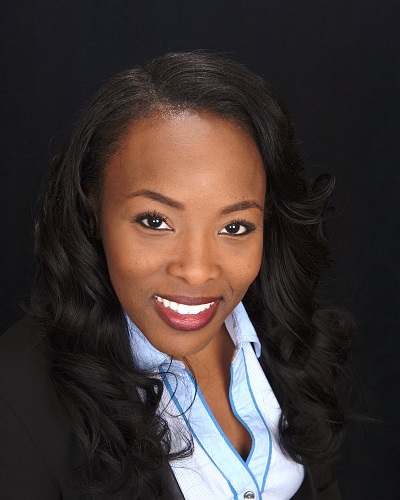
Marva V. Goodson, doctoral student in the School of Criminal Justice, devoted the past five years of her life to working closely with Ingham County youth, who are attending a court-run high school, in order to improve their life circumstances. Goodson’s research focuses on the identity development of delinquent girls, with particular interest in juvenile justice reform.
“Offending adolescent populations face unique adversities which require targeted intervention strategies,” Goodson said. “In 2011, I strived to fulfill this need by co-founding Youth Advancement Through Athletics (YATA), a multi-faceted youth development program which provides athletics, mentorship, career-driven activities, and community engagement opportunities for at-risk students.”
As the co-founder and director of YATA, Goodson trains MSU undergraduate students to provide court-involved Ingham County youth with holistic interventions that are designed to aid in the reduction of their overall risk scores and truancy. The students serves as mentors for the program and provide a six-month strength-based intervention program requiring four to six hours of direct weekly contact with the students. YATA has been awarded multiple grants from the Capital Region Community Foundation to support program activities and has received recognition from the Ingham County Board of Commissioners for its positive community impacts. As of 2016, YATA has administered over 75 strength-based, holistic interventions.
From a research perspective, the project strives to reduce risk for recidivism by targeting four domains (leisure & recreation time, attitudes & orientations, substance abuse, and personality & behavior) of the Youth Level of Service/Case Management Inventory (YLS/CMI) – a risk assessment tool administered by juvenile court officers to determine which domains place youth at the greatest risk for reoffending.
In November 2016, Goodson worked with YATA’s student staff member to produce two research posters that were presented at the American Society of Criminology Conference. One poster explored the empirical basis for program effectiveness based upon YATA’s core components. The other poster utilized YLS/CMI scores to examine key characteristics of participating youth.
“Leadership activities are important because they provide substantive applied experiences,” Goodson said. “They bolster creative thought and inspire those around you to become active within their communities. I believe YATA exemplifies leadership in my field because it informs the literature, helps adolescents fulfill their unmet needs, and trains social science undergraduate students at MSU to effectively serve their community.”
Goodson plans to use the $2,000 COGS Leadership Endowment Fellowship award to cover travel expenses and conference fees associated with presenting a poster at the Academy of Criminal Justice Sciences Conference. Additionally, she is working on submitting her first YATA-focuses empirical article for review, so some of the award will be used to renew her SPSS license and purchase additional literature regarding propensity score matching techniques, in support of her article.
“Receiving the COGS Leadership Endowment Fellowship is truly an honor,” Goodson said. “To me, it represents the collaborative effort of YATA staff, students, and faculty to provide effective targeted, strength-based interventions for court-involved adolescents. YATA would not have been possible without the support of Dr. William Davidson, Sean Hankins, and the MSU Social Science community.”


